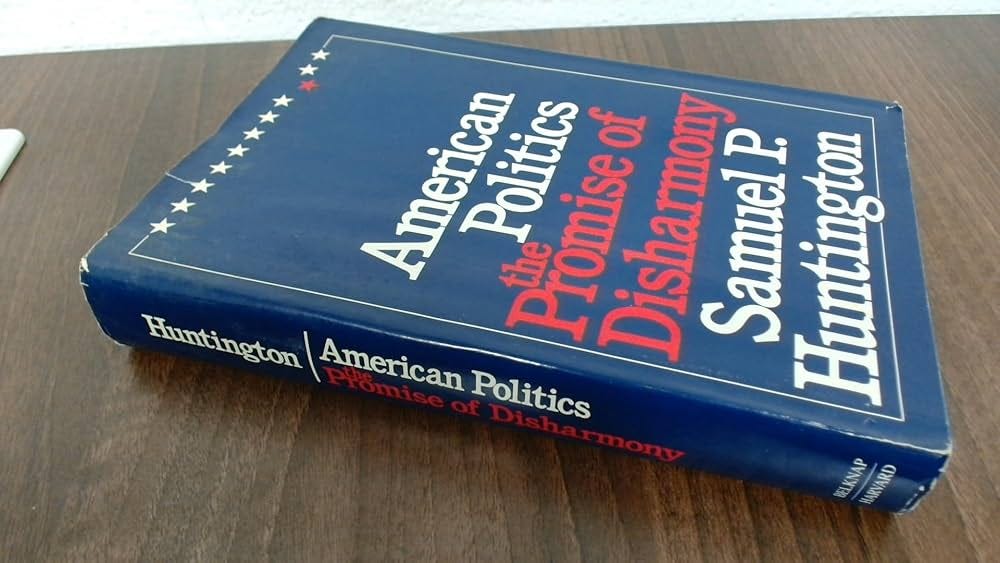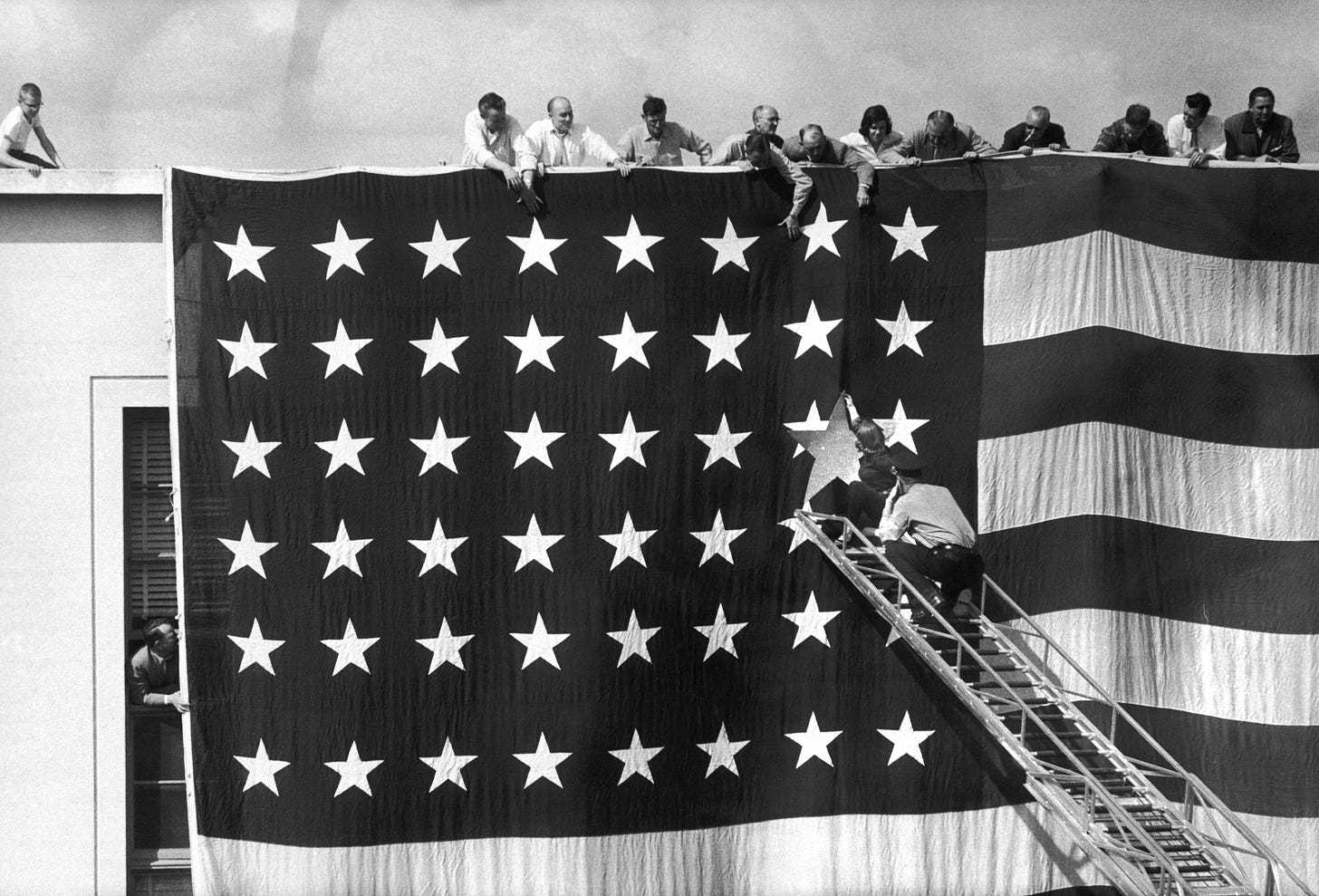Hello! This is a Daily Concept interview with the creator of the Great Americans Project. The Daily Concept is the newsletter for the intellectually curious. Free subscribers get new ideas in their inbox 2x per week. Check out some of our recent posts here — and please consider a subscription!
The Great Americans Project is an Instagram & Substack page focused on American history & civics with nearly 30,000 followers. The posts & videos discuss:
important figures from American history
the ideas & individuals that shaped the American Revolution
key historical events that shaped America’s early history
The creator of the Great Americans Project goes by the pseudonym V. Sidney, but in real life he’s a highly accomplished attorney.
Like myself, he wants to use social media and Substack as an educational tool.
I hope you find his answers as interesting as I did. (This newsletter will be illustrated with some pictures from the Great Americans Project Instagram and other iconic photos from American history)
1. What is the goal of the Great Americans Project?
At the highest level, the goal is to provide an accessible, cohesive way to learn about the genesis of American rights and how they expanded over time.
Focusing on a single, unifying through line - the freedom seekers or “Greats” who expanded or defended them - seemed like a good way to highlight America at its best.
I admire your use of social media as an educational tool. What is your thought process on using social media to 'meet people where they are' (scrolling Instagram on their phones), and how has it been learning to do video editing, graphic design, and social media management as a way of communicating your message?
Thank you. The framing of your question suggests we share similar views.
With so many utilizing social platforms to spread polarizing political views, there was an opportunity to present accurate history in a way that was potentially politically unifying. And with people reading less books, Instagram was provided a good option for disseminating easily digestible content.
Although I’m a lawyer by training, I’ve always had a creative itch, so it's been fun trying to keep up with the rapidly evolving set of editing and design tools. I outsourced some of the early video work but have recently been getting up to speed on that front as well, as the future possibilities seem unlimited.
3. How has your interest in American history & civics developed throughout your life?
The interest in American history has ramped up in the last five years, given the challenges the country is facing domestically and internationally. Many Americans are unhappy with today’s government, often for good reasons.
But as the Roman statesman Cicero noted:
“Gratitude is not only the greatest of virtues, but the parent of all others.”
It’s hard to have gratitude for something one only vaguely appreciates and understands. Recognizing that increased my own interest. And I’m goal-oriented, so I felt a strong sense of urgency in trying to find a way to bring people together. Doing so through civic education seemed like the best starting point.
4. Who are your favorite authors?
Too many to list. For those interested in early American political, social, and military history, Pauline Maier, David Hackett Fischer, Gordon Wood, Jill Lepore, and Patrick K. O’Donnell all good starting points.
And Samuel Huntington’s “American Politics: The Promise of Disharmony,” is essential for understanding the tensions underlying nearly all American political debates.
5. Next year, we will have the 250th anniversary of the Declaration of Independence. What should Americans think about ahead of this anniversary, and what could be done to use this moment to bridge partisan divides?
Great question. A first step, in my view, is a better understanding of how revolutionary Jefferson’s claim in the Declaration that “all men are created equal” was for its time. Given my own relative lack of knowledge on this topic prior to starting this Project, my sense it that’s its difficult for most to grasp how hierarchical early America was compared to today - beyond the obvious inequity of slavery and a lack of rights for women - without additional context.
It also seems rather essential that all Americans understand the clear historical evidence demonstrating Jefferson meant exactly what he wrote, despite his personal failings to live up to that ideal. Without that knowledge, it’s nearly impossible to appreciate America’s unique place in world history or understand the events that followed.
There’s a Substack post on this topic in the works. And those who’ve followed the posts thus far may already know it will involve a Greek philosopher and the intertwined stories of Jefferson, George Mason, John Adams, Josiah Parker, James Madison, and many others – stay tuned.
6. What role can/should the legal community play in improving the state of American civics discourse & education?
They’re vital. There’s an opportunity and an obligation – particularly for those with significant public profiles – to help non-lawyers understand how: (a) the Founders intended government to function; and (b) contemporary federal and state governments have adjusted to address changing demands.
I should also note that history professors are equally - if not more important - as an American legal education is largely focused on learning what’s necessary to pass the bar exam. And while nearly all lawyers are well equipped to explain how government works today, most don’t have the time or interest to gain and disseminate broad, deep historical knowledge outside their areas of issue expertise.
But as American historian David McCollough wrote:
“How can we know who we are and where we are going if we don't know anything about where we have come from and what we have been through, the courage shown, the costs paid to be where we are?”
LEARN MORE:
Daniel Smith of the Daily Concept: I teach U.S. Government classes at Miami-Dade College, and I share the Great Americans Project’s passion for American civics education.
Check out this article I published earlier this year on the topic:
Should the U.S. have a national civics exam?
Do Americans know enough about our system of government?














